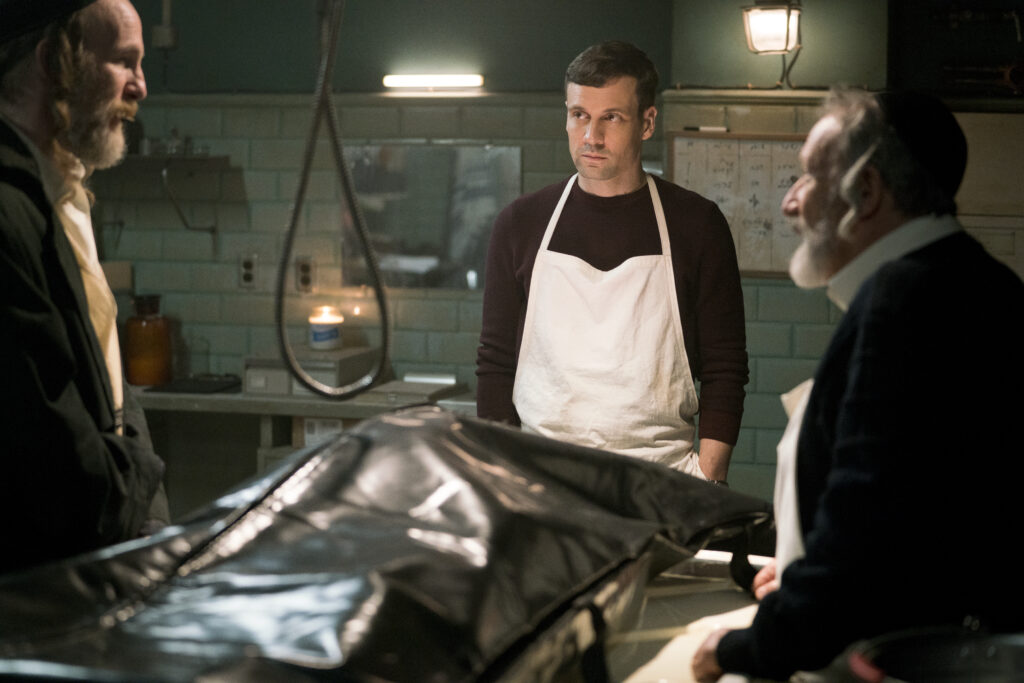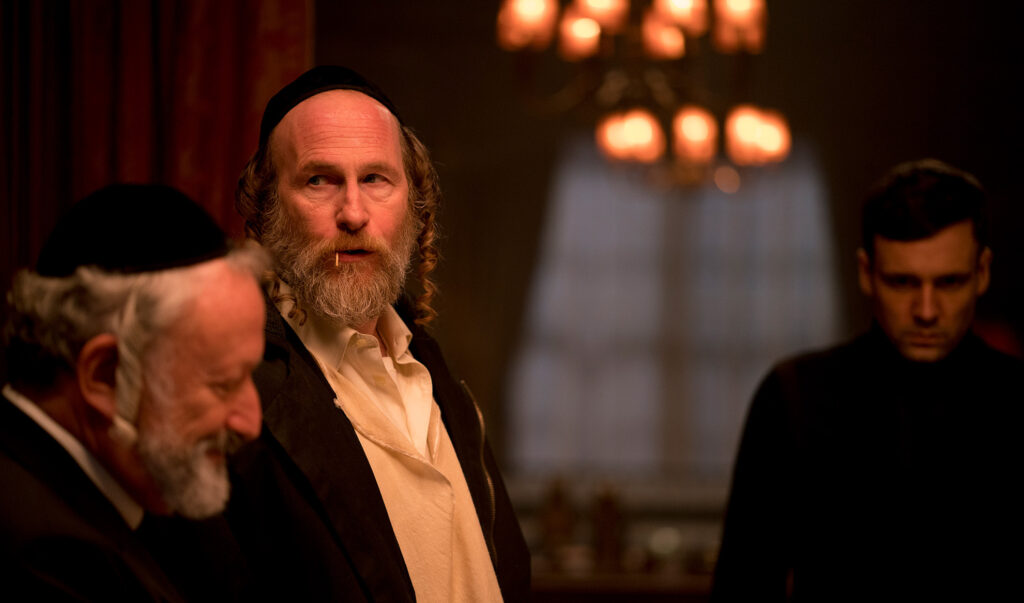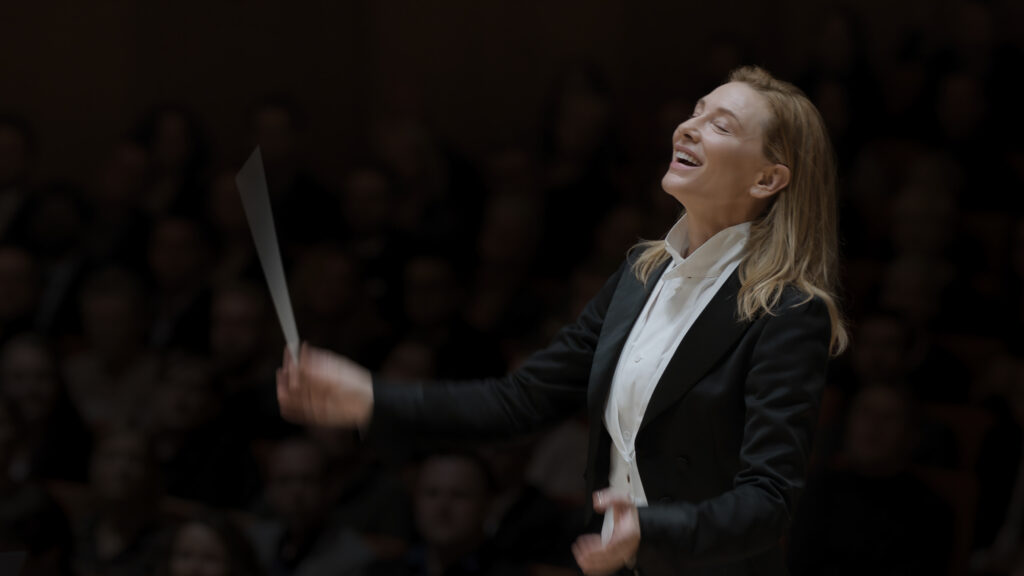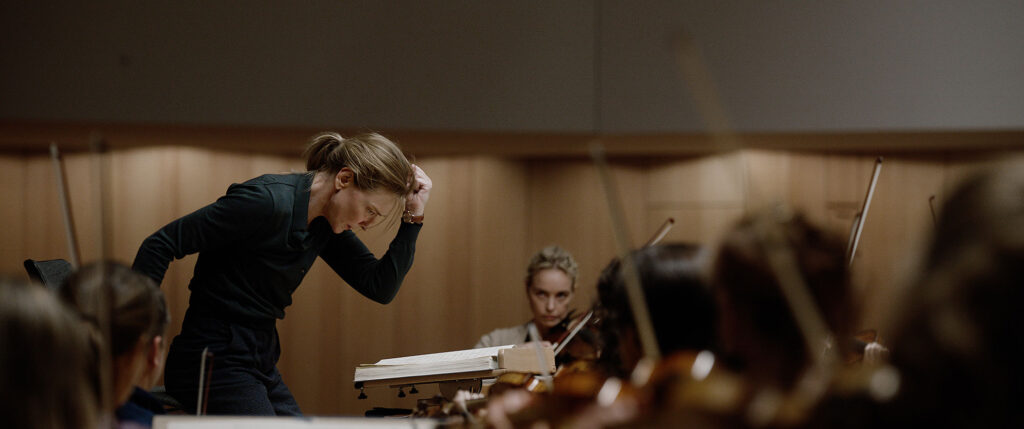February 26, 2023
by Carla Hay

Directed by Oliver Park
Some language in Hebrew with subtitles
Culture Representation: Taking place in New York City, the horror film “The Offering” a features an all-white cast of characters representing the working-class and middle-class.
Culture Clash: A real-estate executive and his pregnant wife return to his hometown of New York City to visit his father, who owns and operates a funeral home that is the scene of many sinister occurrences caused by an evil spirit.
Culture Audience: “The Offering” will appeal primarily to people who don’t mind watching supernatural horror movies that have jumbled stories and weak endings.

“The Offering” is a disappointing and sloppily edited horror movie with some cringeworthy acting. The ending of the movie is very rushed and haphazard. The movie can’t maintain enough suspense. Scenarios are poorly explained and get more and more idiotic. It’s another “evil demon possessing bodies” horror flick that doesn’t do anything interesting after starting out with a promising concept.
Directed by Oliver Park and written by Hank Hoffman, “The Offering” (which takes place in New York City) begins with this statement: “In the myths of the Near East and Europe, there is one terrifying female demon, depicted in amulets, paintings and stones from as early as the first century A.D. She has dozens of names in multiple languages and religions, but carries only one horrifying attribute: the take of children.”
The next scene shows an elderly Orthodox Jewish man named Yosille Fishbein (played by Anton Trendafilov) in the library/study room of his home in New York City’s Brooklyn borough. He’s surrounded by a circle of dirt in the room. A creepy-looking, 7-year-old girl is in the room with Yosille.
She sneers at him in a menacing adult voice: “What are you doing, Yosille? You know what will happen if I don’t feed.” Yosille shouts back: “No more! I will never feed you again!” She replies, “Very well. There are always others. A life for your wife.” Yosille says out loud, “Forgive me.” And then, he stabs himself with a knife.
The movie then shifts to an outdoor scene in Brooklyn, where real-estate executive Art Feinberg (played by Nick Blood) and his pregnant wife Claire Feinberg (played by Emily Wiseman) have arrived to visit Art’s widower father Saul (played by Allan Corduner), who owns and operates the Feinberg Funeral Home in Brooklyn’s Borough Park neighborhood. Observant viewers will notice that on the street where Art and Claire have been dropped off by taxi at the funeral home, there is a missing person poster for a 7-year-old girl named Sarah Scheindal (played by Sofia Weldon), who happens to be the same girl who was with Yosille.
Art is nervous about this visit because he has an ulterior motive for this trip to Brooklyn. This visit is a pleasant surprise for Saul, because he and Art (who is an only child) have been estranged for years, but Saul has wanted a reconciliation for some time. The movie later reveals why Art and Saul were estranged. It has do with the death of Art’s mother. Art and Claire will be staying in the funeral home’s guest room during their visit.
A corpse has recently arrived to be prepared for an upcoming funeral. The dead body is that of Yosille. Years ago, when Art still lived in New York City, his father tried to get him to go into the family business. Art tried, but he didn’t like it. He is still very uncomfortable with the funeral business, but he reluctantly agrees to Saul’s request to help prepare Yosille’s body for the funeral. Art is the one who has to remove the knife from Saul’s chest, which is a very inaccurate-looking scene n the movie, since the knife removal would have been done by a morgue as part of the police investigation into this apparent suicide.
Saul has an employee named Heimish (played by Paul Kaye), who is an Orthodox Jew. Heimish is very suspicious of why Art has suddenly come back to visit Saul. Heimish describes Yosille as a “brilliant scholar” who became a recluse after Yosille’s wife died a few months ago. If you’ve seen enough horror movies or have basic common sense, you can easily figure out the connection between the last scene of Yosille being alive and why he would summon a demon, who has obviously possessed the body of Sarah Scheindal.
Art is by himself when he has to remove the knife from Yosille’s chest. He finds a triangle-shaped, blue jewel pendant, which he kicks down a grate on the floor. Big mistake. When Saul finds the knife in the mortuary sink, he notices that the knife has strange inscriptions that look like they’re in an ancient language. Saul takes the knife to an Orthodox Jewish scholar friend named Chayim (played by Daniel Ben Zenou) to ask him what the inscription reads.
The middle of “The Offering” somewhat drags when Art’s secret reason for this visit is revealed. There are a lot of predictable jump scares and some drama over Claire’s pregnancy. She and Art already know that their unborn child is a girl. All the signs are there that Yosille’s body has brought an evil spirit with it that was in the pendant that Art dropped.
“The Offering” has effective production design, since the set pieces (lots of dark and musty rooms) definitely help give the movie a very foreboding look. However, visuals alone do not make a good movie. The story starts to become an incoherent mess in the last third of the film, when Art suddenly acts like a private detective, and several idiotic things are crammed into the movie to try to ramp up the terror. The last third of “The Offering” also has some very silly chase scenes with terrible film editing.
The very beginning of “The Offering” already reveals that there’s a demon on the loose, so there’s no real suspense in this film. The uneven performances in the movie range from adequate (Corduner is the most convincing in his role) to downright awful (Wiseman is very stiff with her acting). The movie’s visual effects often look tacky and hard to believe.
Worst of all, the ending of “The Offering” is a complete dud and looks like a very lazy way to conclude the movie. For a much better horror movie with Orthodox Jewish themes, watch 2021’s “The Vigil.” “The Offering” and “The Vigil” (which both take place in Brooklyn’s Borough Park neighbhorhood) obviously had low budgets, but “The Vigil” is an example of a low-budget horror movie that delivers a high-quality story and plenty of compelling scares.
Decal released “The Offering” in select U.S. cinemas, on digital and VOD on January 13, 2023. The movie was released in the Netherlands in 2022.


